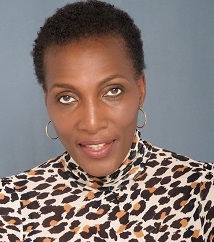
Omicron variant could disrupt economic recovery and increase uncertainty for inflation

By Josef Kefas Sheehama.
The omicron variant could have an outrageous impact on the Namibia economy next year as it hurts consumer spending and worsens labor shortages and supply chain bottlenecks, escalating high inflation. The likely further rise in Omicron driven Covid-19 cases, the threat of stricter lockdown measures and the sudden foreign tourist cancellations place additional downside pressure.
No Man is an Island, the viral infection spread between and across countries and affected nearly every community, demonstrating the highly interconnected nature of the global economy. President Geingob says travel bans imposed by Western countries on SADC have the potential to stall the much needed economic recovery. President Ramaphosa condemned the restrictions, which have also been put on poorer neighboring countries in southern Africa. Ramaphosa said, “The only thing the prohibition on travel will do is to further damage the economies of the affected countries and undermine their ability to respond to, and recover from the pandemic”. We acknowledge the danger of the omicron variant, but the move by western countries was unjust and unfair toward us. We are aware the emergence of the Omicron variant pose downside risks to employment and economic activity and increased uncertainty for inflation. It’s too early to pinpoint how omicron will affect economic growth because scientists are just starting to assess the toll it could take on global health.
My greater concerns about the virus could reduce people’s willingness to work in person, which would slow progress in the labor market and deepen business disruptions. Supply chain problems have made it difficult for manufacturers to meet strong demand, particularly for goods. Increases in prices pushing inflation upward. It is interest to see that cars are no longer depreciate but appreciate. It is difficult to predict the persistence and effects of supply constraints, but it now appears that factors pushing inflation upward will remain well into next year. The staggered economic recovery is projected to widen gaps in living standards between the rich and poor. Inequality undermines social justice and human rights and the interconnectedness of inequalities means some groups have consistently worse opportunities than those of their fellow citizens. The poor often face discrimination, stigma and negative social stereotypes that reduce their social participation and opportunities for employment, and reduce political support for targeted measures.
Furthermore, the experience with past variants suggests that, even with some restrictions on international travel, the spread of the Omicron variant may be hard to stop. Should the new variant lead to another rising wave of Covid-19 infections, the hardest-hit economies will be those with lower vaccination rates, higher dependence on tourism and lower capacity to offer fiscal and monetary policy support to offset the growth impact of the new wave of infections. Omicron has sparked more anxiety than any other variant since the emergence of Delta, itself already much more contagious than previous strains. However, lack of knowledge about omicron has caused fear to grow. In addition, consumers might continue spending on goods in preference to services if new risks around the virus made them reticent about going out. Business disruption resulting from the spread of the new variant could prevent supply chain stresses from easing, dampening productive capacity and stoking further cost pressures in sectors with exposure to global supply chains.
The African Development Bank postponed the 2021 Africa Investment Forum scheduled for December due to the Omicron variant until further notice. More than ever before in living memory, all of humanity is focused on the same global threat, and all of humanity is dependent on the same global solutions such as vaccines, social distancing and the necessity of maintaining an open world economy. The Omicron variant of COVID-19 adds new measures of uncertainty to the outlook for the global economy, although it is too soon to adequately quantify that risk. Much will depend on its speed of transmission, virulence, associated rates of hospitalization and death, and also the effectiveness of vaccines and antiviral medications against it. The adverse effect that the epidemic surges have on economic activity is now serious, as economic players will defer some projects. Thus, the recovery path will be little affected by the future development of the pandemic.
The Omicron variant makes clear that there is no viable strategy to stop the pandemic at moment. The response to the virus must be taken out of the hands of the politicians. The emergence of the Omicron variant and its rapid spread throughout the world proves the urgency of the Inquest and the strategy advanced as the basis for the fight to end the pandemic. Therefore, the only effective strategy is one based on a coordinated campaign aimed at the elimination of the virus in every region. There is no effective national solution to this pandemic. All Namibians must confront and overcome this challenge through a vast collective and truly selfless national effort.
In conclusion, the Omicron variant of the coronavirus has added new uncertainties to the global economy and could threaten the recovery. Rising inflation due to higher commodity prices and depreciation pressures may prompt some monetary tightening, which may undermine or delay economic recovery. Omicron reinforces that the economy remains tethered to the pandemic. Building and supporting economic resilience have become key strategies to reduce business interruptions and economic losses caused by shocks. Understandably, basic resources are the key to this recovery and should be closely monitored.











































